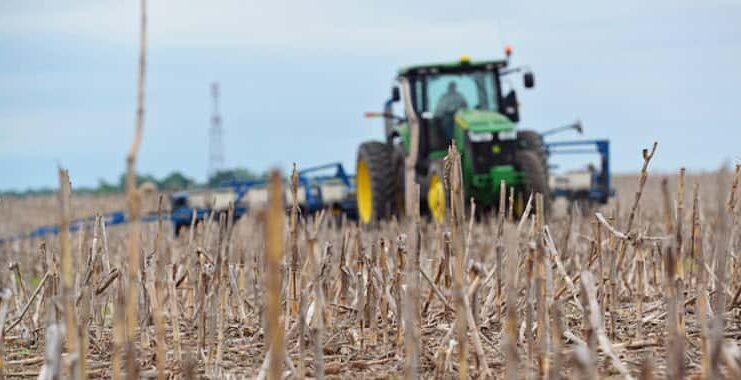The Department of Agriculture is providing $10 million to support climate-smart agriculture and forestry through voluntary conservation practices in ten targeted states. Available through the Environmental Quality Incentives Program, the funding will help producers plan and implement voluntary conservation practices that sequester carbon, reduce greenhouse gas emissions, and mitigate climate change.
Producers in Arkansas, Florida, Georgia, Michigan, Minnesota, Mississippi, Montana, North Carolina, Pennsylvania and Wisconsin can apply for the funding. Each state will determine its own signup period, with signups expected to begin on or around June 24 in most states.
USDA’s Natural Resources Conservation Service, which administers EQIP, selected states based on demand for additional support for climate-smart practices. The pilot will be expanded across all states and programs in fiscal year 2022.
“Farmers, ranchers and forest landowners are the best stewards of our lands and waters, and they play a critical role in climate change mitigation,” said Gloria Montaño Greene, USDA’s Deputy Under Secretary for Farm Production and Conservation. “We will use this EQIP signup to deliver support for implementing critical climate-smart conservation practices to producers in key states, with plans to leverage lessons learned and further support national climate change mitigation efforts later this calendar year.”
“Supporting producers equitably is critical to our mission,” said NRCS Chief Terry Cosby. “By working with our producers and partner groups across these states, we are striving to ensure funds are equitably distributed, including to our historically underserved producers. NRCS has a suite of conservation practices producers can implement to meet these goals.”
EQIP and Targeted Climate Change Mitigation
Through EQIP, NRCS provides agricultural producers and landowners with financial assistance and one-on-one technical support to plan and implement voluntary conservation practices. The outcomes are a benefit for producers and the environment, with producers conserving natural resources and delivering environmental benefits while building resiliency to strengthen their working land
While NRCS offers a broad array of conservation practices, the agency identifies a sub-set as critical for reducing greenhouse gas emissions, sequestering carbon and ultimately mitigating the impacts of climate change. These climate-smart conservation practices will be prioritized in this targeted EQIP signup period and support systems for:
- Building soil health.
- Improving nitrogen management.
- Improving livestock waste management systems.
- Enhancing grazing and pasture management.
- Improving agroforestry, forestry and upland wildlife habitat.
- Improving conservation management for rice production.
Producers can visit NRCS’s EQIP webpage for a list of the specific climate-smart conservation practices.
###
USDA


